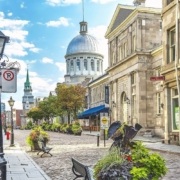Airbnb Regulations in Ottawa 2023
Airbnb Licensing
Ottawa has recently implemented licensing regulations for Airbnb hosts. This means that in order to list your property on Airbnb, you must first obtain a license from the city. The license fee varies based on the number of units being rented and the length of each rental agreement. For example, a single unit rented for less than 28 days will incur a $200 fee, while a single unit rented for more than 28 days will incur a $400 fee. The licensing fee is used to cover the cost of enforcement and administration of the regulations.
Check out Airbnb Regulations in Brampton, Ontario.
Airbnb Regulation
The regulation of Airbnb in Ottawa is designed to balance the interests of both hosts and the wider community. Hosts must comply with several rules and regulations, including obtaining the necessary permits, licenses, paying taxes, and meeting certain health and safety standards. In addition, hosts must provide their guests with accurate information about their rental property, including the location, number of bedrooms, and any special rules or restrictions that may apply. They must also provide guests with contact information for the city in case of any emergencies or issues.
Familiarize yourself with Airbnb Regulations in Calgary.
Short-term Rental Regulation for Hosts
One of Ottawa’s most important regulations for short-term rental hosts is the requirement to pay taxes. Hosts are required to collect and remit the appropriate taxes, such as the HST and the Municipal Accommodation Tax, for each rental agreement. This helps to ensure that the city receives its fair share of the revenue from the thriving Airbnb market.
Another important regulation for hosts is the requirement to maintain their rental property in a safe and hygienic condition. This includes providing guests with clean linens and towels and ensuring that the property is free from any safety hazards. In addition, hosts must also ensure that their property is properly equipped with smoke detectors, fire extinguishers, and carbon monoxide detectors.
In order to further protect the interests of guests, the city of Ottawa has also introduced regulations relating to noise and disturbance. This means that hosts must ensure that their guests do not cause undue disturbance to their neighbors, such as by keeping noise levels to a minimum during nighttime hours. In addition, hosts must also ensure that their guests do not engage in any illegal activities on the property, such as drug use or underage drinking.
Enforcing the Regulations
The city of Ottawa is committed to enforcing its regulations related to Airbnb. This includes regular inspections of rental properties to ensure that they are in compliance with all relevant rules and regulations. In addition, the city also has the power to fine or penalize hosts who violate the regulations, and even to revoke their license if necessary.
Implementing Short-term Rental Insurance
Another important aspect of Airbnb regulation in Ottawa is the requirement for hosts to have proper insurance coverage. This is especially important given the risks associated with renting out your property to strangers. Hosts must have liability insurance in place to protect themselves and their guests in the event of accidents or damage to the property.
There are several insurance options available to hosts, including special short-term rental insurance policies. These policies are designed specifically for Airbnb hosts and provide coverage for various risks, such as liability, theft, and damage to the property. In addition, some insurance companies also offer coverage for lost rental income, in case your property is unable to be rented out due to a covered loss.
Benefits of Airbnb Regulations for the Community
While the regulations related to Airbnb in Ottawa may seem like a burden for hosts, they also have several benefits for the wider community. Firstly, they help to ensure that the short-term rental market is safe and hygienic for guests. By requiring hosts to meet certain health and safety standards, the city is helping to protect the well-being of those who use Airbnb.
Secondly, the regulations help reduce short-term rentals’ negative impacts on the community. For example, by requiring hosts to adhere to noise and disturbance regulations, the city is helping to prevent Airbnb properties from becoming nuisances for neighbors.
Finally, the regulations help to ensure that the city receives its fair share of the revenue from the Airbnb market. By requiring hosts to pay taxes, the city is able to generate additional revenue that can be used to fund important services and infrastructure.
Conclusion
The regulations related to Airbnb in Ottawa are designed to balance the interests of hosts, guests, and the wider community. By requiring hosts to obtain a license, pay taxes, and maintain their properties in a safe and hygienic condition, the city is helping to ensure that the short-term rental market is safe and regulated. Hosts must also have proper insurance coverage in place to protect themselves and their guests in the event of accidents or damage to the property. By complying with these regulations, Airbnb hosts in Ottawa can enjoy the sharing economy’s benefits while contributing to their community’s well-being.
Read also Ottawa Vacation Rental Market Overview












